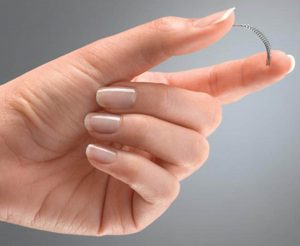Requires that patients receive risk information before using contraceptive device.
 In its commitment to ensuring the post-market safety of medical devices, the FDA used their authority to impose a unique restriction on the sale and distribution of the permanent female contraceptive device Essure. Despite efforts to educate and inform both patients and doctors about the risks associated with the Essure device, the FDA became aware that many women were not receiving this important information.
In its commitment to ensuring the post-market safety of medical devices, the FDA used their authority to impose a unique restriction on the sale and distribution of the permanent female contraceptive device Essure. Despite efforts to educate and inform both patients and doctors about the risks associated with the Essure device, the FDA became aware that many women were not receiving this important information.
In 2016, the FDA ordered Bayer, the manufacturer of Essure, to conduct a post-market survey of patients implanted with the device. This led to an order that Bayer must include a boxed warning and a patient decision checklist on the product labeling, which led to an approximately 70% decline in sales of Essure in the United States. Despite this, the FDA still feels that many patients are not receiving the information about risks before deciding upon implantation.
“Every single woman receiving this device should fully understand the associated risks,” said FDA Commissioner Scott Gottlieb, M.D.
Bayer has been ordered to immediately implement the additional safety measures, which include a patient brochure entitled Patient-Doctor Discussion Checklist – Acceptance of Risk and Informed Decision Acknowledgement. This document must be reviewed with the prospective patient by the healthcare provider, and both patient and the implanting physician must sign the document to ensure the patient has been fully informed of the risks of the device. Bayer has been informed that the FDA will be monitoring these new restrictions, and failure to comply could result in criminal and civil penalties.
What is Essure?
Essure is a permanently implanted birth control device. Essure is unique in that it is the only permanent birth control device that does not require a surgical incision. It was approved for use by the FDA in 2002. The device is deposited into the fallopian tubes via flexible coils inserted into the vagina and cervix. Over a period of three months, tissue forms around the device, creating a barrier that prevents sperm from reaching the eggs.
What risks are associated with the Essure device?
Some women have reported adverse events after implantation of the Essure device, including:
- Perforation of the uterus
- Perforation of the fallopian tubes
- Migration of the device to the abdominal cavity
- Migration of the device to the pelvic cavity
- Persistent pain
- Allergic or hypersensitivity reactions
- Headache
- Fatigue
- Weight changes
- Hair loss
- Mood changes
- Depression
Have you been implanted with the Essure device?
Our attorneys are investigating patient claims related to the adverse reactions to the Essure permanent birth control device. If you or a loved one has been implanted with the Essure inserts and have experienced complications or adverse reactions, contact the Essure attorneys at Aylstock, Witkin, Kreis & Overholtz today for a free consultation. There is never a fee unless we recover for you.

